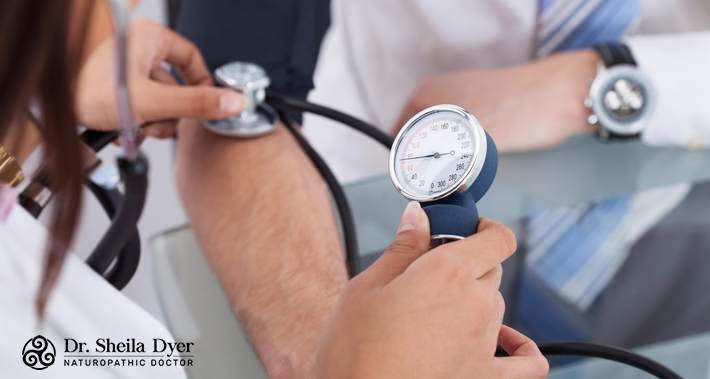Whether in the long, cold days of winter that seem to last forever and turn our skin to sandpaper, or in the hot summer months that see us sweating buckets on a simple run to the grocery store, dehydration comes into play any time of the year and can affect our bodies more than we realize.
Our bodies are made up of more than half water, and as a result most of our bodily functions rely on water to survive.
When we suffer from a deficit of water, or dehydration, we feel lousy, and in more serious cases our health can be at risk.
As a Toronto naturopath, I frequently see the signs of dehydration in my clients.
The smallest amount of dehydration can leave you feeling moody, tired, inattentive, or lacking in memory and motor skills.
Feeling run down all the time is just one of the many impacts dehydration can have on the body, and things can get a lot more serious than that.
It’s important to understand the signs and symptoms of dehydration, and the impact it can have on our bodies.
But apart from feeling thirsty, how do we recognize the signs of dehydration?
First, let’s explore the science behind dehydration.
What Is Dehydration?
Simply put, dehydration is the condition your body enters into when you are not getting enough water.
Our bodies require water for the most simple of tasks, such as breathing and digestion.
Dehydration is the condition that occurs when the amount of water leaving the body outweighs the amount being taken in.
What Happens When You’re Dehydrated?
When you lose water without replacing it, through such things as sweating, urinating, or even breathing, your blood becomes more concentrated.
This triggers your kidneys, which retain water, making you urinate less.
Urination is one of the ways in which the body releases toxins.
When your blood is more concentrated due to dehydration, your heart rate increases to maintain blood pressure.
If dehydrated during a workout, when you are already pushing your heart rate, you risk fainting.
Your heart can be similarly taxed in conditions of extreme heat, which will result in heat exhaustion and can be very serious.
Your body can also enter a hyperthermic state, or fever, when dehydrated, due to an inability to regulate temperature.
The body also “borrows” water for the blood at a cellular level, causing shrinkage and affecting brain function.
These are many reasons that dehydration can become very serious if not attended to.
But apart from feeling thirsty, how can we recognize the signs of dehydration?
1. You Have Bad Breath
Lack of water leads to lack of saliva, causing more bacteria to grow in your mouth.
Bad breath is not only going to turn people off kissing you, it may be affecting your health.
2. You Get A Headache
If you’ve ever woken up in the morning with a “hangover”, you know what a headache caused by dehydration feels like.
Lack of water in the body causes the blood pressure to plummet, which causes headache pain.
Even a mild case of dehydration, such as being out in the hot sun, can cause a headache.
Fortunately, this also means that drinking water can raise your blood pressure and relieve symptoms.
3. Your Skin Becomes Drier
Signs that your skin is suffering symptoms of dehydration include:
- Cracked lips or skin
- Redness in the skin
- Flakiness and itching
- Shrinking or tightening in the skin
When the skin loses water, any or all of these symptoms may occur.
It is important to drink more water both in the cold winter months, when your skin loses moisture due to dryness in the air, or when out in the heat and sweating.
4. You Get Tired
Feeling run down or lethargic is a common symptom of dehydration.
Tiredness is a symptom of low blood pressure, which can occur when the body is starved of water.
If you find yourself often low on energy, try drinking more water and see what a difference it can make.
5. Your Blood Pressure Drops
One of the most common causes of low blood pressure is dehydration.
The blood, like your body, is more than half water.
Losing water causes your blood vessels to shrink.
If you suffer from low blood pressure, try drinking more water to balance your body.
6. You Get Constipated
Constipation can be caused by a lack of water in the digestive system.
We get water into our digestive system through food, but you also need to drink enough water that the body is not borrowing this water for other processes.
If you find your stool is dry or small lumps, or you have difficulty having bowel movements, drinking more water can be a useful natural solution for digestive disorders.
7. Your Urine Is Dark
One of the easiest ways to tell you are dehydrated is to look at the colour of your urine.
Darker, concentrated urine tells you that you may be lacking water.
If you are not urinating regularly, you are dehydrated.
When drinking a healthy amount of water you will urinate more often and your urine will be lighter in colour.
8. You Have Trouble Focusing
While your body may be 50 to 60 percent water on average, your brain is more than 70 percent water.
If your body is lacking water it is also lacking in brain function.
Less brain function can manifest itself by lower concentration levels, alertness or memory.
If you suffer from “brain fog”, your problem may be that you are dehydrated.
How Much Water Should You Drink?
In most cases, dehydration can be treated by drinking water.
But how much water is enough?
A rough estimate is 3.7 litres for men and 2.7 litres for women.
But this can depend on many factors, such as metabolism, climate, and diet.
We get approximately 20% of our water from food, and the rest must be obtained from the beverages we drink.
Are you drinking enough water to allow your body to function normally?
Book An Appointment With Dr. Sheila Dyer, ND
If you find yourself suffering from the symptoms described here, you may need to drink more water, or it may be a symptom that needs addressing by a professional.
Having a naturopathic doctor on your side can help you determine whether your symptoms of dehydration are serious.
Call me, Dr. Sheila Dyer, ND, if you find yourself experiencing symptoms of dehydration and I will help you to find a remedy.
Contact me, Dr. Sheila Dyer, ND, today
If you have questions about naturopathic medicine, or would like to start with your first consultation, contact me, and let’s book an appointment.
Dr. Sheila Dyer, ND1080 Dovercourt Rd,
Toronto, ON M6H 2X8
(416) 554-5135
► https://g.page/DrSheilaDyerNd
Dr. Sheila Dyer is a Naturopathic Doctor and a practicing registered nurse offering holistic healthcare with a scientific focus

